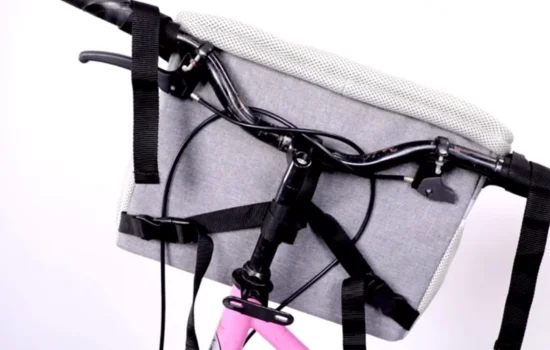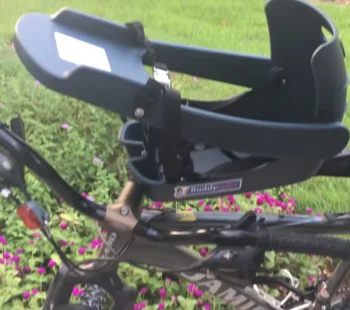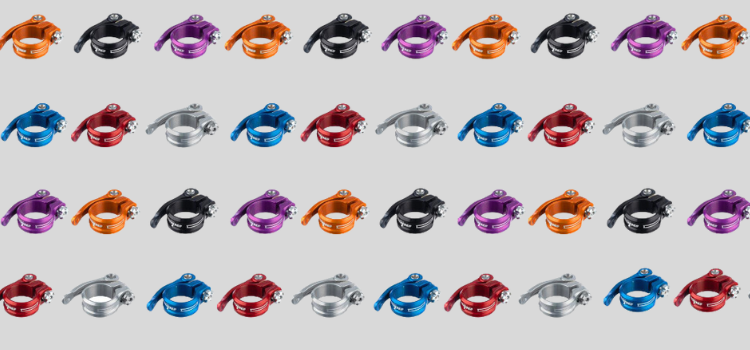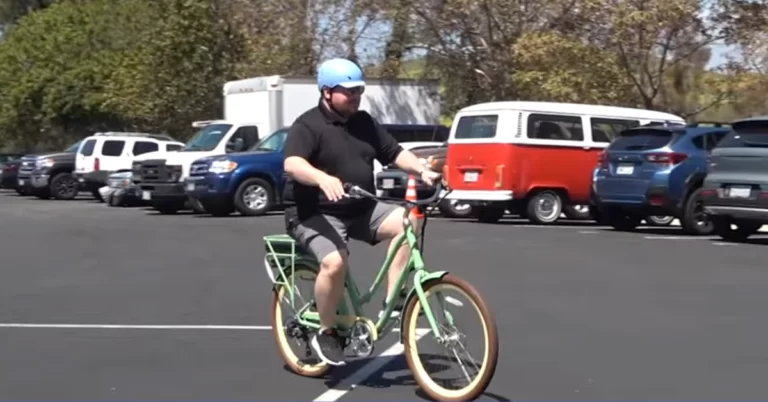Biking with Dogs: Safe & Fun | Dog Bike Baskets & Gear
Riding a bike with your furry companion in a basket can be a delightful experience, but safety should always be a top priority. Whether you’re a seasoned cyclist or a newbie, this comprehensive guide will walk you through various methods to ensure a safe and enjoyable bike ride with your dog in a basket. From choosing the right basket to practicing essential techniques, we’ve got you covered. Let’s dive in!
How to Ride Bike with a Dog in a Basket – Getting Started

Riding a bike with your canine companion in a basket can be a fantastic way to spend quality time together and explore the outdoors. However, it’s essential to take the necessary precautions and follow specific guidelines to ensure a safe and enjoyable experience for both you and your furry friend. In this guide, we’ll walk you through the steps to get started with biking alongside your dog in a basket. Let’s dive in!
Choosing the Right Basket
The first step in biking with your dog is selecting a suitable bike basket. Look for a sturdy, well-ventilated, and secure basket that comfortably accommodates your dog’s size. Opt for baskets with a safety leash attachment to prevent your dog from jumping out during the ride. Measure your dog’s length and height to ensure they have enough room to sit or lie down comfortably.
Getting Your Dog Acquainted with the Basket
Before hitting the road, introduce your dog to the basket in a familiar environment. Place the basket on the floor and encourage your dog to explore it using positive reinforcement like treats and praise. Allow them to sniff and step inside the basket voluntarily, creating positive associations with this new space.
Introducing the Bike
Once your dog is comfortable with the basket, it’s time to introduce them to the bike. Begin by letting your dog sniff and inspect the bike while it’s stationary. This helps them get accustomed to the bike’s presence and smell. Keep the initial interactions positive and stress-free.
Short Walks with the Bike
Next, attach the basket to your bike and take your dog on short walks with the bike by your side. Hold the leash in one hand and the bike’s handlebar in the other, maintaining control over both. This step allows your dog to associate the bike with leisurely walks, making them more at ease with it.
Teaching Commands
Basic obedience commands are essential for a safe bike ride with your dog. Teach your dog commands like “sit,” “stay,” and “heel” to ensure they follow your instructions during the ride. Practice these commands both on and off the bike until your dog responds reliably.
Preparing for the First Ride
Before embarking on your first bike ride together, ensure your dog is wearing a well-fitted harness that attaches securely to the bike leash. The harness prevents strain on your dog’s neck and provides you with better control during the ride. Keep the ride short initially and choose a quiet, familiar route to minimize distractions.
Starting the Ride
With your dog safely secured in the basket, mount your bike and start pedaling slowly. Use verbal cues and hand signals to communicate with your dog, letting them know when to sit or stay still. Maintain a gentle pace, allowing your dog to get accustomed to the motion.
Monitoring Your Dog
During the ride, keep a close eye on your dog’s body language and behavior. Look for signs of discomfort, anxiety, or fatigue. If your dog appears stressed or tired, stop the ride and let them rest. Always prioritize your dog’s well-being and adjust the ride accordingly.
Practice Makes Perfect
Consistency is key when biking with your dog in a basket. Practice short rides regularly, gradually increasing the distance and duration as your dog becomes more comfortable and confident. Each ride reinforces the positive experience, strengthening the bond between you and your furry companion.
How Do You Transport a Dog in a Bike Basket?

Biking with your furry friend in a bike basket can be a delightful experience, but ensuring their safety and comfort is paramount. Whether you have a small dog or a slightly larger one, proper transportation is essential. In this guide, we’ll walk you through the steps to safely and comfortably transport your dog in a bike basket. Let’s get started!
Choosing the Right Bike Basket
Selecting a suitable bike basket is the first step towards ensuring your dog’s safe transportation during bike rides.
Size and Capacity
Choose a bike basket that provides ample space for your dog to sit or lie down comfortably. Measure your dog’s dimensions to ensure they fit comfortably within the basket.
Material and Build
Opt for a sturdy and well-ventilated basket made from durable materials, such as metal or high-quality plastic. Ensure the basket has a secure bottom to support your dog’s weight.
Safety Leash Attachment
Look for a basket with a safety leash attachment to prevent your dog from jumping out during the ride. A leash that can be securely fastened to your dog’s harness is essential.
Introducing Your Dog to the Basket

Getting your dog acquainted with the bike basket is crucial to make them feel comfortable and secure during the ride.
Positive Association
Begin by placing the basket on the ground and encouraging your dog to explore it using positive reinforcement like treats and praise. Allow them to enter the basket voluntarily.
Familiarization
Let your dog spend some time inside the basket while it’s stationary. Offer treats and comforting words to create a positive association with the basket.
Prepping for the Ride
Before embarking on your bike ride with your dog in the basket, certain preparations are necessary for a safe and enjoyable experience.
Proper Leash and Harness
Make sure your dog is wearing a well-fitted harness that attaches securely to the bike leash. This prevents strain on your dog’s neck and provides better control during the ride.
Obedience Commands
Ensure your dog is familiar with basic obedience commands such as “sit,” “stay,” and “heel.” These commands will help you communicate effectively during the ride.
Getting on the Bike

When it’s time to hit the road, follow these steps to safely place your dog in the bike basket and begin the ride.
Secure Placement
Gently place your dog in the basket, making sure they are comfortable and well-positioned. Attach the safety leash to your dog’s harness to prevent any accidental falls.
Starting Slowly
Begin the bike ride at a slow and steady pace. Allow your dog to get accustomed to the motion before picking up speed.
Monitoring Your Dog
During the ride, closely monitor your dog’s behavior and well-being.
Body Language
Watch for any signs of discomfort, anxiety, or fatigue. If your dog appears stressed or tired, stop the ride and give them a break.
Safety Tips
Ensuring your dog’s safety during the bike ride is of utmost importance.
Short Rides Initially
Start with short rides to gauge your dog’s response and gradually increase the duration as they become more comfortable.
Avoid Busy Roads
Choose quiet and familiar routes for your bike rides, away from heavy traffic, to minimize stress and distractions for your dog.
Stay Hydrated
Carry a water bottle and a collapsible bowl to keep your dog hydrated during the ride, especially on warm days.
Handlebar Bike Basket for Dogs
A handlebar bike basket for dogs is a popular and convenient accessory that allows you to bring your furry companion along on bike rides. It attaches securely to the front of your bike, providing your dog with a front-facing view and keeping them close to you during the ride. In this guide, we’ll explore the benefits of using a handlebar bike basket for dogs and provide essential tips for a safe and enjoyable biking experience with your canine friend. Let’s dive in!
Advantages of a Handlebar Bike Basket for Dogs
Front-Facing Ride
A handlebar bike basket allows your dog to face forward during the ride, giving them an unobstructed view of the surroundings. This front-facing position provides them with a more engaging and interactive experience during your biking adventures.
Bonding Opportunities
Having your dog close to you on the handlebar fosters a strong sense of companionship and bonding. It allows you to interact with your furry friend throughout the ride, reinforcing the bond between you and creating cherished memories.
Ideal for Smaller Dogs
Handlebar bike baskets are particularly well-suited for smaller dog breeds or puppies. The size and weight capacity of these baskets are ideal for accommodating petite canines comfortably.
Easy Monitoring
With your dog positioned in the handlebar basket, it becomes easier to keep a close eye on their behavior and well-being during the ride. You can quickly respond to any signs of discomfort or distress.
Choosing the Right Handlebar Bike Basket
1. Size and Weight Capacity
Select a handlebar bike basket that matches the size and weight of your dog. Measure your dog’s dimensions to ensure they can sit or lie down comfortably without feeling cramped.
2. Secure Attachment
Look for a bike basket with a reliable and secure attachment mechanism. Ensure that it fits snugly and stably onto your bike’s handlebars to prevent any wobbling or tipping during the ride.
3. Ventilation and Material
Opt for a basket made from breathable and durable materials. Good ventilation keeps your dog cool and comfortable, especially during warm weather rides.
Safety Precautions
1. Proper Harness and Leash
Before placing your dog in the handlebar basket, make sure they are wearing a well-fitted harness. Attach the leash securely to the basket’s leash attachment point to prevent your dog from jumping out during the ride.
2. Gradual Introduction
Introduce your dog to the handlebar basket gradually. Allow them to explore and sit in the basket while the bike is stationary to get accustomed to the new space.
3. Start with Short Rides
For first-time users, start with short rides to gauge your dog’s comfort and response. Gradually increase the duration as your dog becomes more familiar and at ease with the basket.
Enjoying the Ride
1. Gentle and Smooth Riding
Maintain a smooth and steady pace during the ride to ensure your dog’s comfort. Avoid sudden stops or jerky movements that might startle your canine companion.
2. Interact and Communicate
Engage with your dog throughout the ride by speaking to them and offering reassurance. Use hand signals or verbal cues to let them know when to sit or stay still.
Rear Rack Bike Basket for Dogs
A rear rack bike basket for dogs is an excellent accessory for pet owners who enjoy cycling with their furry companions. Unlike handlebar baskets, rear rack baskets are attached to the rear of the bike, providing a stable and balanced ride for both you and your dog. In this comprehensive guide, we’ll explore the advantages of using a rear rack bike basket for dogs and provide essential tips to ensure a safe and enjoyable biking experience for you and your four-legged friend. Let’s dive in!
Advantages of a Rear Rack Bike Basket for Dogs
1. Stability and Balance
A rear rack bike basket offers a stable and balanced ride, as it is centered over the bike’s rear wheel. This design reduces the chances of the bike becoming top-heavy and enhances overall safety during the ride.
2. Suitable for Medium to Large Dogs
Rear rack bike baskets are designed to accommodate medium to large-sized dogs comfortably. Their larger size and weight capacity make them ideal for transporting bigger furry companions.
3. Ample Space and Comfort
With more space than handlebar baskets, rear rack baskets allow your dog to stretch out, sit, or lie down with ease. The generous room provides optimal comfort for your dog during the ride.
4. Compatibility with Panniers
Many rear rack bike baskets are compatible with panniers, offering additional storage space for essentials like water bottles, treats, or your dog’s accessories.
Choosing the Right Rear Rack Bike Basket
1. Size and Weight Capacity
Select a rear rack bike basket that corresponds to your dog’s size and weight. Measure your dog’s dimensions to ensure they fit comfortably within the basket without feeling cramped.
2. Material and Build
Opt for a sturdy and durable rear rack basket made from high-quality materials like metal or heavy-duty plastic. The basket should be able to withstand various weather conditions and regular use.
3. Safety Features
Look for a rear rack basket with safety features such as a secure attachment mechanism and leash attachment points. These ensure your dog stays safely inside the basket during the ride.
Safety Precautions
1. Proper Leash and Harness
Before embarking on your bike ride, ensure your dog is wearing a well-fitted harness. Attach the leash securely to the bike basket’s leash attachment points to prevent your dog from jumping out.
2. Gradual Introduction
If your dog is new to the rear rack bike basket, introduce them to it gradually. Let them explore and sit in the basket while the bike is stationary to become familiar with the new space.
3. Starting with Short Rides
For first-time users, begin with short rides to allow your dog to get comfortable with the basket’s movement. Gradually increase the duration and distance as they become more at ease.
Enjoying the Ride
1. Steady and Smooth Riding
Maintain a steady and smooth pace during the ride to ensure your dog’s comfort. Avoid sudden stops or rough riding that might cause discomfort to your canine companion.
2. Interaction and Communication
Interact with your dog throughout the ride by speaking to them and offering reassurance. Use hand signals or verbal cues to communicate with them effectively.
Get the Right Biking Gear & Accessories for Dogs
If you love biking and want to include your four-legged friend in your adventures, getting the right biking gear and accessories for dogs is essential. Equipping your dog with the appropriate gear ensures their safety, comfort, and enjoyment during bike rides. In this comprehensive guide, we’ll explore the must-have biking gear and accessories for dogs, so you and your furry companion can have a fantastic time on two wheels. Let’s get started!
1. A Dog Bike Leash
Biking with your dog requires a reliable and secure dog bike leash to keep them safely attached to your bike.
Features to Consider
Look for a dog bike leash that is adjustable in length, allowing your dog enough freedom to move comfortably while maintaining control during the ride. Ensure it has durable materials and strong hardware to withstand the rigors of outdoor activities.
Safety Measures
Always attach the dog bike leash to a well-fitted harness rather than a collar to prevent strain on your dog’s neck. The harness provides better support and stability during the ride.
2. A Well-Fitting Dog Harness for Running
A well-fitting dog harness designed specifically for running or biking activities is crucial for your dog’s comfort and safety.
Proper Fit
Choose a dog harness that fits snugly and comfortably on your dog. Avoid harnesses that are too loose or too tight, as they can cause discomfort during the ride.
Padded and Breathable
Opt for a dog harness with padding and breathable materials to prevent chafing and irritation during extended bike rides.
3. Dog Water Bottle
Staying hydrated is essential, especially during active bike rides with your dog.
Travel-Friendly Design
Invest in a dog water bottle that is easy to carry and can be attached to your bike or carried in a backpack. Look for leak-proof and spill-proof features to keep you and your dog dry.
Foldable or Collapsible
Consider a foldable or collapsible dog water bottle for easy storage when not in use.
4. Poop Bags
Responsible pet ownership includes cleaning up after your dog during bike rides.
Biodegradable and Environmentally-Friendly
Choose biodegradable poop bags to minimize your environmental impact while keeping the biking trails clean.
Dispenser and Attachments
Use a poop bag dispenser that can be conveniently attached to your bike or carried in a pocket for quick and easy access.
FAQs
Final Verdicts
Biking with your dog in a basket can be an enjoyable and bonding experience when done safely and responsibly. Choose the appropriate method that suits your dog’s comfort level and gradually build their confidence. Always prioritize their safety by using the right gear and following the guidelines provided in this guide. With patience and positive reinforcement, you and your furry friend can have countless adventures on two wheels!






